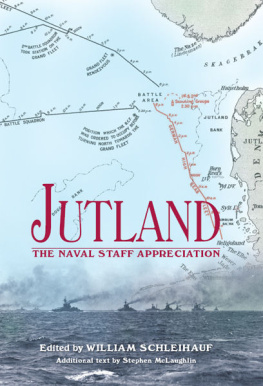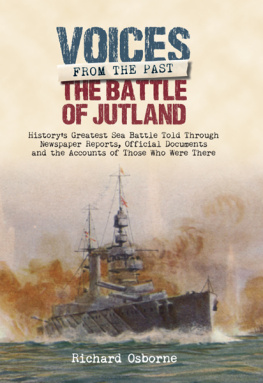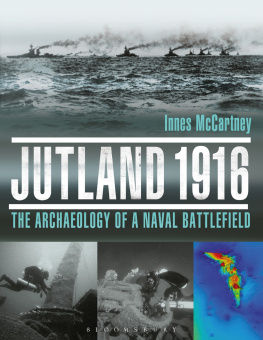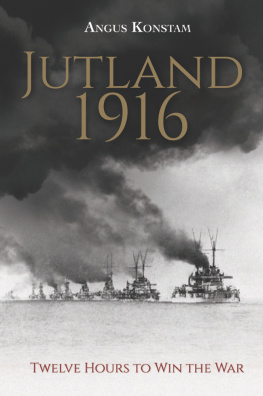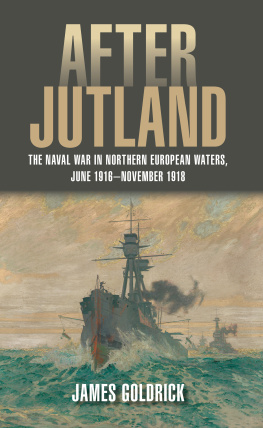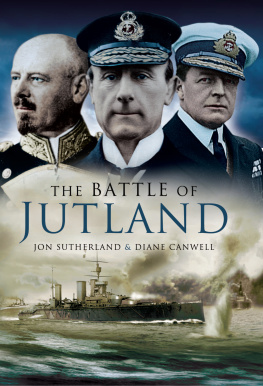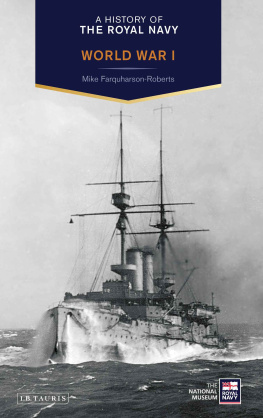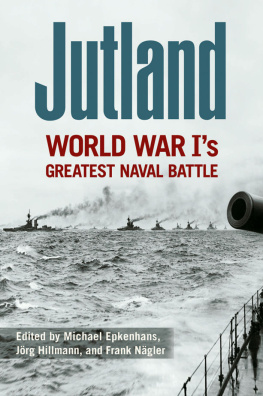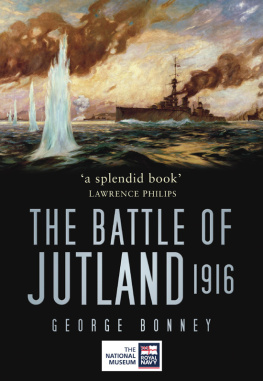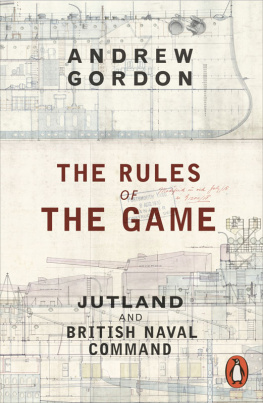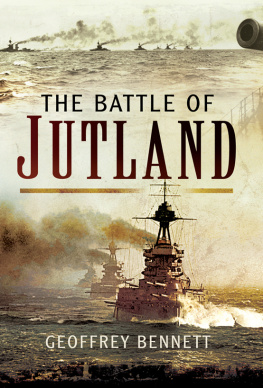Contents
Guide
Pagebreaks of the print version
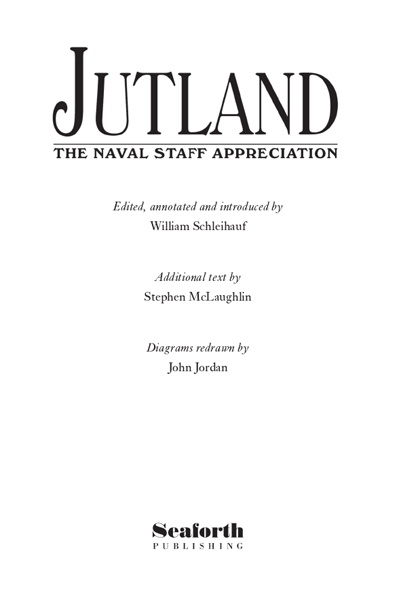
This book is dedicated to those men in both navies,
who fought for their Sovereign and Country
on that misty Wednesday in May, 1916
and at the going down of the sun, we shall remember them
and to the memory of my Father
William Franklin Schleihauf
Royal Canadian Tank Regiment
who volunteered to serve his King and Country, 19441945
Edited text copyright The Estate of William Schleihauf 2016
Additional text copyright Stephen McLaughlin 2016
Drawings John Jordan 2016
First published in Great Britain in 2016 by
Seaforth Publishing,
Pen & Sword Books Ltd,
47 Church Street,
Barnsley S70 2AS
www.seaforthpublishing.com
British Library Cataloguing in Publication Data
A catalogue record for this book is available from the British Library
ISBN: 978 1 84832 317 9
PDF ISBN: 978 1 84832 320 9
EPUB ISBN: 978 1 84832 319 3
PRC ISBN: 978 1 84832 318 6
All rights reserved. No part of this publication may be reproduced or transmitted in any form or by any means, electronic or mechanical, including photocopying, recording, or any information storage and retrieval system, without prior permission in writing of both the copyright owner and the above publisher.
The authors moral rights have been asserted by them in accordance with the
Copyright, Designs and Patents Act 1988.
Typeset in 11/14 Ehrhardt by M.A.T.S, Leigh-on-Sea, Essex
Printed and bound in Great Britain by CPI Group (UK) Ltd, Croydon, CR0 4YY
Contents
List of Diagrams
Number
Abbreviations
Note: For ease of reference, this listing combines abbreviations used in the original Naval Staff Appreciation of Jutland and those introduced by the editor.
APC: Armour Piercing, Capped, that is, a type of shell designed to penetrate heavy armour.
BCF: Battle Cruiser Fleet (or Battle Cruiser Force).
BCS: Battle Cruiser Squadron, e.g. the 2nd BCS.
BS: Battle Squadron, e.g., the 5th BS.
CAC: Churchill Archives Centre, Churchill College, Cambridge.
CPC: Common, Pointed, Capped, i.e., a type of shell with a heavier bursting charge than APC, but without APCs ability to penetrate heavy armour.
CS: Cruiser Squadron, consisting of the older type of armoured cruiser.
DID: Director of the Intelligence Division of the War Staff.
DOD: Director of the Operations Division of the War Staff.
German I, II, etc.: These refer to the numbered charts of German movements from Scheers report issued with the Official Despatches (see below).
G.F.B.O.: Grand Fleet Battle Orders.
Harper I, II, etc.: These refer to the numbered charts accompanying Captain Harpers original record of the Battle of Jutland. These were not included in the Reproduction of the Record of the Battle of Jutland as published in 1927, and the charts have since been lost. The closest approximation to them are the diagrams included in vol. III of Corbetts Naval Operations, which were based more or less directly on Harpers charts.
HE: High Explosive shell, filled with Lyddite, a form of picric acid.
LCS: Light Cruiser Squadron.
Marder, FDSF: Arthur J. Marder, From the Dreadnought to Scapa Flow.
(r): Reports from individual ships or admirals reproduced in the Official Despatches (see below).
NARA: National Archives and Records Administration, Washington, D.C.
NMM: The National Maritime Museum, Greenwich.
Official Despatches: Cmd. 1068, Battle of Jutland, May 30 to June 1. Official Despatches with Appendices. A collection of reports and other documents related to the battle, published by HMSO in 1920.
RMA: Royal Marine Artillery. At this point in time, Britains Royal Marines were split into the RMA (the Blue Marines), and the Royal Marine Light Infantry (the Red Marines).
(s): Signal log.
(s1): Iron Dukes compiled signal log (see the original Introduction, Section 3 for an explanation of this term).
(s2): Iron Dukes contemporary signal log (see the original Introduction, Section 3 for an explanation of this term).
SO: Senior Officer; thus, SO BCF is the Senior Officer, Battle Cruiser Fleet, i.e., Admiral Beatty.
TNA: The National Archives (formerly the Public Record Office), Kew.
TS: Transmitting Station: A below-decks compartment which housed the Dreyer Fire Control Table, and which was the centre of gunnery communications.
Von Hase: The Naval Staff Appreciation was printed before the commercial version of Georg von Hases book Kiel and Jutland was published; instead, the authors used a translation prepared by the Intelligence Division (usually but not always cited as I.D. 1220 in the footnotes), as well as the original German edition. No attempt has been made to update these citations, as there are at least two versions of von Hases book in English, with different pagination.
(w): wireless log (see the original Introduction, Section 3 for an explanation of this term).
(w/e): wireless entry log (see the original Introduction, Section 3 for an explanation of this term).
W/T: Wireless Telegraphy, i.e., (Morse) radio
William Roger Schleihauf, 22 September 1958 27 January 2009: An Appreciation
This project was the brainchild of Bill Schleihauf, yet tragically he did not live to see its fulfilment. So it is fitting that before plunging into the text we take a moment to say a few words about him.
Bill was interested in all things nautical, a fact reflected in the many organisations to which he belonged and contributed he was president of the Montreal Branch of the Naval Officers Association of Canada (although he never served in the RCN), long-time secretary to the Canadian Nautical Research Society and editor of Argonauta, its bulletin, a trustee of the Canadian Naval Memorial Trust, member of the Friends of HMCS Haida, and an experienced scuba diver. He was also an ardent supporter of the Monarchy. The depth of Bills interest in Canadian and British naval history may be gauged from the select bibliography below. He was especially interested in fire control, and his three-part article on the Dumaresq and the Dreyer Tables will likely remain a standard work on these devices for many years to come.
It was because of our mutual interest in fire control that Bill and I first began our correspondence, sometime back in the mid-1990s. Bills personality came through clearly in every email message his commitment to the British Commonwealth, his love of good beer, his disdain for Microsoft software, and his wry sense of humour. But what I remember most was his intellectual honesty. This aspect of his personality was demonstrated when I chanced to meet a famous naval historian. I asked his opinion of one of Bills articles; the historian criticised the article rather severely criticisms that in my view were totally unwarranted. When I reluctantly mentioned this incident to Bill, he immediately asked me exactly what the criticisms were, so that he could consider them and decide if they were valid. He wasnt defensive or offended he just wanted to learn as much as he could from a historian whose views he respected.
After corresponding through email for a decade, I finally met Bill in April 2004 when we visited the battleship USS Massachusetts as members of a group of fire-control enthusiasts. We were shown through many areas of the ship usually off-limits to visitors, including the fire-control room, where we were allowed to play (respectfully) with the equipment. It was a memorable gathering, but unfortunately it was destined to be the only time I met Bill face-to-face. We made plans to get together when I visited Washington, D.C. in the spring of 2008; Bill was going to drive down from Quebec so that we could both do research at the U.S. National Archives. But it was not to be; I got an email from Bill after I arrived at the hotel his (unspecified) illness had laid him up. Less than a year later that illness non-Hodgkin lymphoma took his life.

